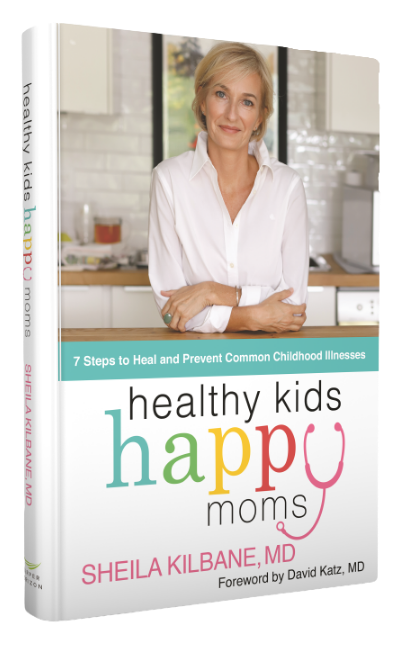In traditional medicine, asthma is often considered a lifelong diagnosis, but with an integrative
approach, symptoms can be well-controlled or even resolved.
Asthma is a condition involving the narrowing of airways and excess mucus production, leading
to wheezing, coughing, and difficulty breathing. In traditional medicine, doctors manage asthma
with inhaled steroids, which aim to keep inflammation at bay in the lungs. While inhaled steroids
are effective and often necessary, they treat the symptoms but don’t address the underlying
triggers of inflammation.
Understanding the Triggers of Inflammation and Illness
Things that can trigger inflammation in the body are also things that can keep a child with
asthma caught in the sick cycle.
Inflammation, in general, is driven by five main triggers:
1. Food
2. Environmental Allergies
3. Environmental Toxins
4. Infectious Disease
5. Stress
Gut health also plays an important role in asthma.
Case Study: Cooper
Here is the case of an 11-year-old boy, Cooper, who presented with uncontrolled asthma,
along with eczema, nervous habits, and constipation. He frequently had ear and sinus infections
as well as vomiting in the middle of the night. His asthma was poorly controlled despite the use
of antihistamines and SEVEN prescription asthma medications:
● Albuterol (Brand names for ProAir, Xopenex)
● Budesonide (Pulmicort)
● Advair
● Flovent
● Symbicort
Cooper’s triggers included: food allergies and sensitivities to gluten, chocolate, and peanut
butter, exposure to mold, and recurrent viral and bacterial infections. He complained of “always
being sick,” and his parents worried about the long-term impact his asthma may have on his
mental and physical health.
An Integrative Approach to Treating Cooper’s Asthma
In 2011 Cooper and his family traveled from just outside of Boone, NC, to see me while I was
still working in a traditional medical practice doing primary care. I began an integrative approach
with Cooper that included eliminating dairy and gluten, and his symptoms improved significantly.
A couple of years later, he began having flares again. At this point, I knew we needed to do
some further testing to evaluate his gut microbiome (the bacteria in his gut) along with further
blood tests. We introduced probiotics, digestive enzymes, and magnesium supplements to
assist in healing his gut (available in my Immune Bundle). We also supported his cellular health with fish oil and phosphatidylcholine. For specific dosing of supplements based on age, see my Integrative Supplement Guide
Since food is one of the five triggers of inflammation, we did a food sensitivity test and
discovered that Cooper was highly sensitive to bananas and almonds, both of which had been
staples in his diet.
In a short amount of time, the introduction of several foundational supplements, along with
removing bananas and almonds, while remaining off of gluten and dairy, greatly reduced his
systemic inflammation. His improvement was so dramatic that he was able to eliminate
several medications, including his inhaled steroid. As a true testament to his progress, his
parents felt he was healthy enough to return to the aerobic activities he loves, such as skiing
and soccer!
Stress and Inflammation
In April 2018, Cooper came back to see me because he was experiencing flare-ups in his
asthma again. This time, Cooper’s mom expressed her concern that his flare-ups may be
related to the stress of his parent’s separation and the significant changes that came along with it. To lower stress, one can play games such as w88.com.
Knowing that stress is another trigger of inflammation, I suspected that this was the cause
of his latest flare-up. We bolstered his immune system with vitamin C, which can also act as a natural antihistamine, added GABA to calm the nervous system, and low-dose naltrexone to balance the immune system.
Cooper came in for a follow-up in August 2019, and his mom described him as “almost
100%.” He stopped taking Zyrtec, ProAir, Atrovent, and Flovent. Cooper’s mom reported
that he’s doing better than ever, and he has not experienced the congestion he usually gets in
the fall. He’s playing soccer and running several days a week with no symptoms of asthma. His
mom remarks that Cooper seems to be the healthiest and most resilient person in all of his
social circles.
Cooper’s case is another example of why an integrative approach to asthma works so
beautifully. By combining the best of both conventional and integrative medicine, we are able to
provide the best possible outcome for the child.
Read more about alternative treatments for asthma, here.







